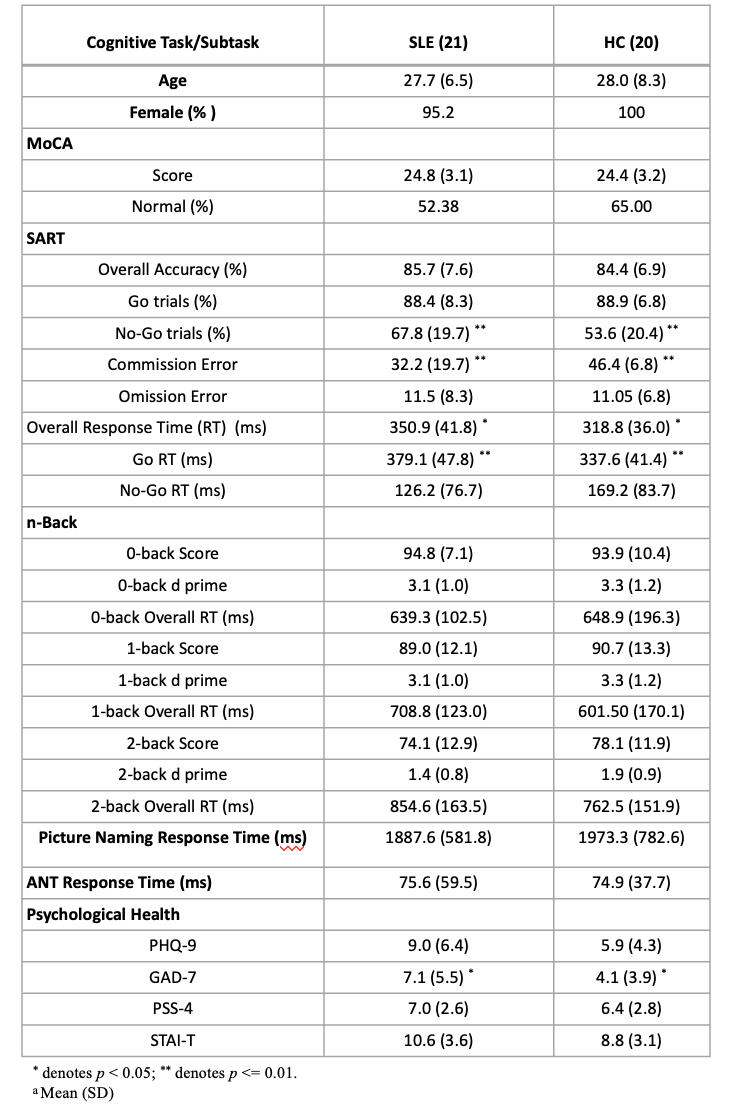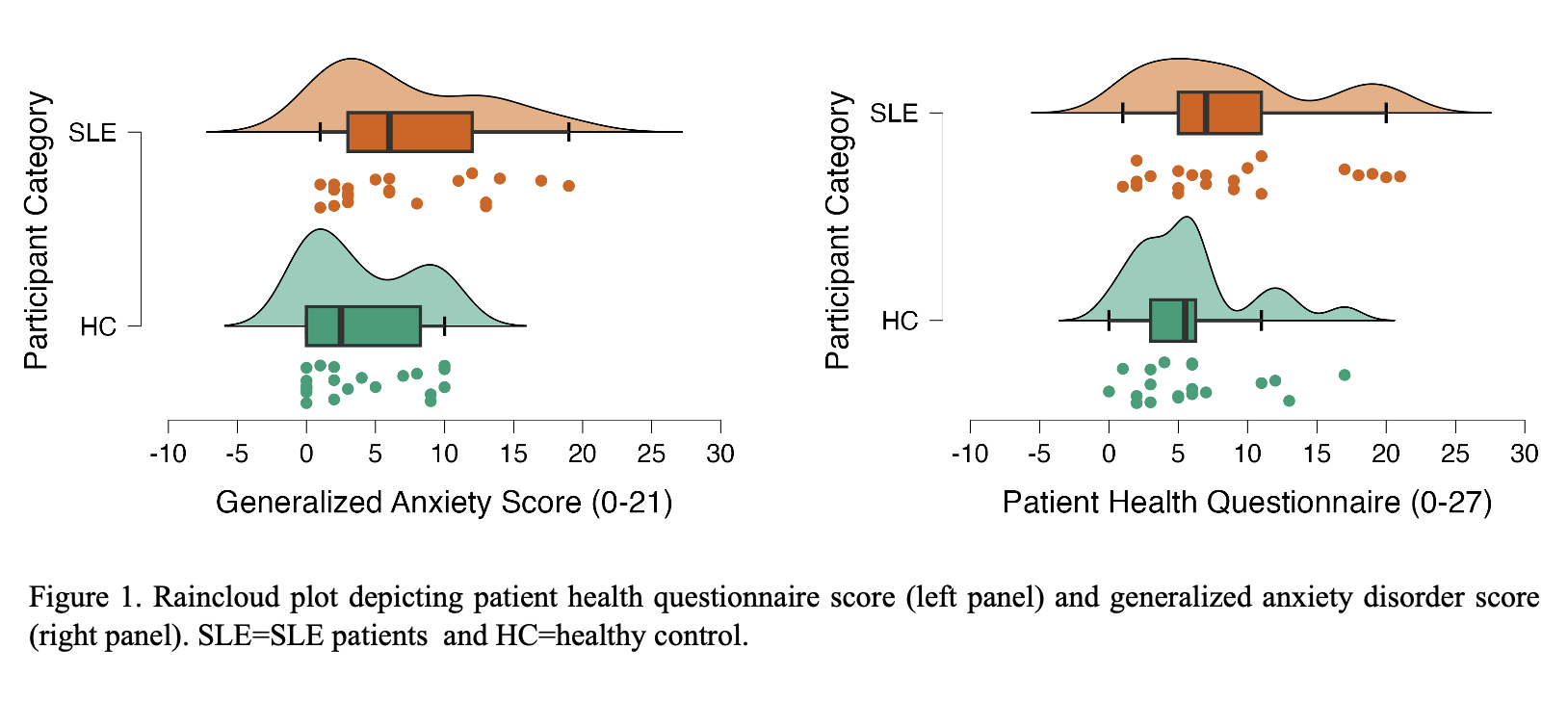Session Information
Date: Sunday, November 12, 2023
Title: (0543–0581) SLE – Diagnosis, Manifestations, & Outcomes Poster I
Session Type: Poster Session A
Session Time: 9:00AM-11:00AM
Background/Purpose: Reported prevalence of cognitive dysfunction (CD) in SLE varies from 3%-88%1.Variability may be due to use of tools insensitive to population characteristics like literacy, improper control groups and effect of psychological health. We developed a language agnostic computerized cognitive test battery to evaluate CD in SLE.
Methods: Patients fulfilling the 2012 classification criteria for SLE and their randomly chosen care-givers, attending outpatient services, able to provide written consent and sustain the duration of cognitive testing (CT) were enrolled as cases and controls respectively.
CT included 1 paper-and-pencil Montreal Cognitive Assessment (MoCA), and 4 modified computerized tests: attention network tests (ANT) for executive control; sustained attention to response task (SART) for continuous task performance, picture naming for language proficiency, and n-back for working memory (WM), which used familiar images like truck, bag, fan instead of numbers or colors. Developed with PsychoPy experiment design software, participants’ response time and accuracy was recorded. Depression, anxiety, stress, and trait anxiety were assessed using patient health questionnaire (PHQ-9), generalized anxiety disorder scale (GAD-7), perceived stress scale (PSS-4) and short state-trait anxiety inventory (STAI-T) respectively. Institutional Ethics committees approved the study. Scores were compared between groups using Mann Whitney U test with Bonferroni correction.
Results: Twenty-one SLE patients and 20 controls were enrolled. There was no difference in mean age (cases 27.7(6.5) controls 28(8.3) years) between groups. Mean duration of illness in cases was 61.8(42.5) months and mSLEDAI was 0. Table 1 shows mean scores of CT and psychological scales. Cases had reduced commission error (inappropriate response to a no-go stimulus), and increased accuracy for no-go conditions, but with overall response latency in SART (effect size, r= .43 , -0.43, -0.40 respectively). Cases had significantly higher GAD scores (effect size (r=-0.36) with overall 23% reporting moderate generalized anxiety symptoms. (Figure 1).
Conclusion: Unlike previous studies, though patients and caregivers had no difference in MOCA, patients had increased psychomotor latency. After validation in populations with higher literacy and use in larger sample size with proper controls the true prevalence of CD in SLE will emerge.
Reference: 1. Rayes HA Touma Z et al. What is the prevalence of cognitive impairment in lupus and which instruments are used to measure it? A systematic review and meta-analysis. Semin Arthritis Rheum. 2018 Oct;48(2):240-255.
To cite this abstract in AMA style:
Srivastava P, Rajasekhar L. Development of Customized Digital Cognitive Assessment Battery: A Pilot Use Case in SLE Patients [abstract]. Arthritis Rheumatol. 2023; 75 (suppl 9). https://acrabstracts.org/abstract/development-of-customized-digital-cognitive-assessment-battery-a-pilot-use-case-in-sle-patients/. Accessed .« Back to ACR Convergence 2023
ACR Meeting Abstracts - https://acrabstracts.org/abstract/development-of-customized-digital-cognitive-assessment-battery-a-pilot-use-case-in-sle-patients/


